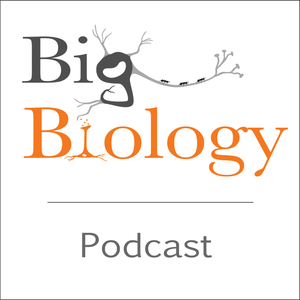🚀 From Google Podcasts to Moon FM in No Time: Your Hassle-Free Migration Guide
👉

The biggest biology podcast for the biggest science and biology fans. Featuring in-depth discussions with scientists tackling the biggest questions in evolution, genetics, ecology, climate, neuroscience, diseases, the origins of life, psychology and more. If it's biological, groundbreaking, philosophical or mysterious you'll find it here. Support this podcast: https://podcasters.spotify.com/pod/show/bigbiology/support
Your feedback is valuable to us. Should you encounter any bugs, glitches, lack of functionality or other problems, please email us on [email protected] or join Moon.FM Telegram Group where you can talk directly to the dev team who are happy to answer any queries.